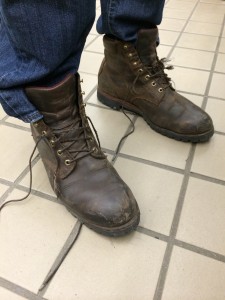 What’s the best way to solve your problems? If you’ve tried to ignore, deny, minimize, discount or avoid them, perhaps it’s time to dig in and approach them with resolve.
What’s the best way to solve your problems? If you’ve tried to ignore, deny, minimize, discount or avoid them, perhaps it’s time to dig in and approach them with resolve.
Recently a friend told me that’s just what he is going to do. He said (a little bit sheepishly), that approaching his problems with resolve sounded kind of old fashioned… Huh? Well, I thought, what exactly is “resolve?” I pondered a while, and then looked it up, and here’s what I found:
resolve | ri’zälv, -‘zôlv |
verb
1 [with obj.] settle or find a solution to (a problem, dispute, or contentious matter).
- [no obj.] (of a symptom or condition) disperse, subside, or heal.
2 [no obj.] decide firmly on a course of action.
noun
firm determination to do something.
ORIGIN late Middle English (in the senses ‘dissolve, disintegrate’ and ‘solve (a problem)’: from Latin resolvere, from re- (expressing intensive force) + solvere ‘loosen.’
Okay, so… if you are determined to do something, and decide firmly on a course of action, and you find (and carry out) a solution, why is that considered old fashioned? And if it is, what about the other attributes that are probably necessary in a situation where approaching with resolve is the best idea… You may need to call upon other “old fashioned” (or are they timeless?) values such as patience, perseverance, tolerance and self-discipline.
I was raised in Pittsburgh, and taught the way to solve many problems is to simply roll up your sleeves and apply some “elbow grease” and, if needed, “shoe leather” to the situation. That’s right, just get in there and do what it takes to address your problems. What if, when it boils right down to it, the best way to solve your problems is by simply taking them on and sorting them out, bit by bit. After all, what’s the best way to eat an elephant? One bite at a time — and perhaps with a bit of resolve!!





